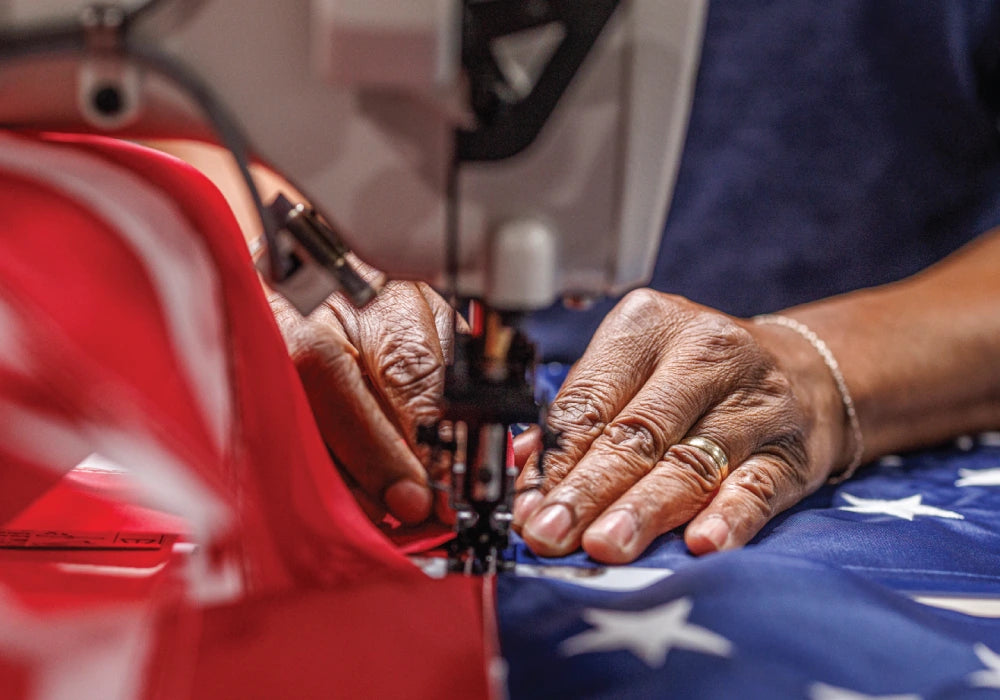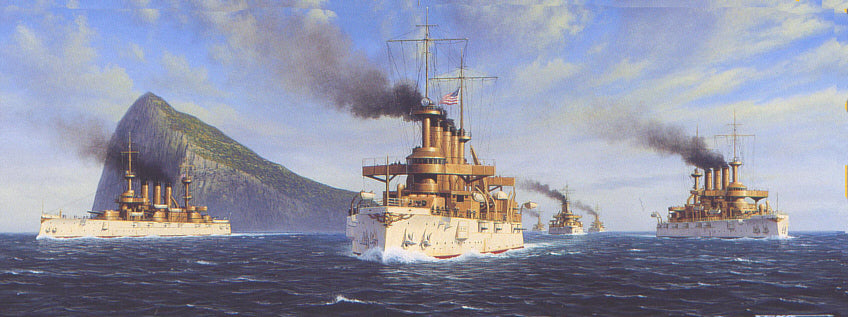December 11


1941
Adolf Hitler declared war on the United States. While the bombing of Pearl Harbor surprised even Germany, Hitler had made an oral agreement with his Axis partner Japan that Germany would join a war against the United States. The U.S. Navy was already attacking German U-boats, and Hitler despised Roosevelt for his repeated verbal attacks against his Nazi ideology. Wrongly thinking that Japan was much stronger than it was and that Germany could win the war, the German charge d’affaires in Washington handed American Secretary of State Cordell Hull a copy of the declaration of war. Later that day, the U.S. declared war on Germany.


1978
Half a dozen masked robbers raided the Lufthansa Airlines cargo building at JFK Airport in New York, making off with more than $5 million in cash ($21 million in today's dollars) and almost $1 million in jewelry. To this day, the Lufthansa heist, as it is known, is considered one of the greatest in U.S. history. As depicted in the famous movie Goodfellas, the heist was carried out by infamous mobster-turned-movie-consultant Henry Hill and a crew of gangsters who all eventually turned on each other or were murdered.

2008
Financier Bernard Madoff was arrested at his New York City apartment and charged with masterminding a long-running Ponzi scheme later estimated to involve around $65 billion, making it one of the biggest investment frauds in Wall Street history. The victims included celebrities, banks, universities, charities and ordinary individual investors, some of whom lost their life savings. The charitable foundation of Holocaust survivor and Nobel Peace Prize winner Elie Wiesel lost more than $15 million. Madoff was sentenced to 150 years behind bars for his “extraordinary evil" actions. He died of natural causes on April 14, 2021 at 82.
December 12

1937
During the battle for Nanking in the Sino-Japanese War, the U.S. gunboat Panay was attacked and sunk by Japanese warplanes in Chinese waters. The American vessel, neutral in the Chinese-Japanese conflict, was escorting U.S. evacuees and three Standard Oil barges away from Nanking, the war-torn Chinese capital on the Yangtze River. After the Panay was sunk, the Japanese fighters machine-gunned lifeboats and survivors huddling on the shore of the Yangtze. Two U.S. sailors and a civilian passenger were killed and 11 personnel seriously wounded, setting off a major crisis in U.S.-Japanese relations.

1970
After more than a decade of being one of Motown's most important figures, Smokey Robinson had his first #1 hit, “The Tears Of A Clown," with Smokey Robinson & The Miracles. Robinson’s association with Berry Gordy began even before Motown Records was founded, and it continued long after he stopped scoring hits of his own. Robinson’s “Shop Around” was the company’s first big hit (it was a Billboard #2 hit for The Miracles in 1960), and his “My Guy” (1964) and “My Girl” (1965) were #1 hits for Mary Wells and The Temptations, respectively. In 1967, Smokey Robinson became the vice president of Motown Records Corporation, a position he held for the next two decades until the company was sold to MCA in 1988.


1980
American oil tycoon Armand Hammer pays $5,126,000 at auction for a notebook containing writings by the legendary artist Leonardo da Vinci. The manuscript, written around 1508, was one of some 30 similar books da Vinci produced during his lifetime. Originally known as Codex Leicester, but renamed Codex Hammer, it contained 72 loose pages featuring some 300 notes and detailed drawings, all relating to the common theme of water and how it moved. In 1994, it was sold to Bill Gates for a new record high price of $30.8 million. Gates restored the title of Codex Leicester and has since loaned the manuscript to a number of museums for public display.
December 13

1918
President Woodrow Wilson arrived in France to take part in WWI peace negotiations and to promote his plan for a League of Nations. The war, in which upward of 116,000 American soldiers died, grimly illustrated to Wilson the unavoidable relationship between international stability and American national security. Wilson’s treaty negotiations in Europe set the tone for post-war American foreign diplomacy, which emphasized intervention over isolation, and introduced the idea of a multi-national peace organization. The League of Nations failed, largely as a result of the fact that the U.S. decided not to join, but it was the precursor to the United Nations, which was established in the wake of the Second World War.

2003
After spending nine months on the run, former Iraqi dictator Saddam Hussein was captured while hiding in a six-to-eight-foot deep hole, nine miles outside his hometown of Tikrit. Saddam’s downfall began on March 20, 2003, when the United States led an invasion force into Iraq to topple his government. During his 24 years in office, Saddam’s secret police, charged with protecting his power, terrorized the public, ignoring the human rights of the nation’s citizens. With Iraq facing allegations of illegal oil sales and weapons-building, the United States invaded the country with the expressed purpose of ousting Saddam and his regime. After standing trial, he was executed on December 30, 2006. Despite a prolonged search, weapons of mass destruction were never found in Iraq.

2007
The baseball world was rocked when The Mitchell Report was publicly released. The report was written by former Senate Majority Leader George J. Mitchell after he was appointed by Commissioner of Baseball Bud Selig to investigate the use of performance-enhancing drugs in MLB. The report listed the names of 89 Major League Baseball players that had presumably used anabolic steroids and human growth hormones. Notable players included Roger Clemens and Miguel Tejada. Some questioned whether being a director of the Boston Red Sox created a conflict of interest for Mitchell, especially because no prime Red Sox players were named in the report. Likewise, the report was commissioned by Selig, and no members of the Milwaukee Brewers, whom Selig once owned, appeared in the report.
December 14

1799
George Washington, the American revolutionary leader and first president of the United States, died at his estate in Mount Vernon, Virginia at 67 years old. Of his presidency, he said, “I walk on untrodden ground. There is scarcely any part of my conduct which may not hereafter be drawn in precedent.” In 1792, he was unanimously reelected but four years later refused a third term. In 1797, he finally began a long-awaited retirement at his estate in Virginia. He died two years later. His friend Henry Lee provided a famous eulogy for the father of the United States: “First in war, first in peace, and first in the hearts of his countrymen."

1819
Alabama became the 22nd state of the Union. The young United States acquired the British claims to all lands east of the Mississippi River, including present-day Alabama, as part of the treaty that ended the American Revolution. Alabama was originally part of the Mississippi Territory, which up until then was claimed by the colony of Georgia. Under pressure to see two slave states emerge, Congress created the Alabama Territory out of the eastern half of the Mississippi Territory in 1817. William Wyatt Bibb was named governor. The population grew rapidly, which led to petitions for statehood, which was granted two years later.


1909
Workers placed the last of the 3.2 million 10-pound bricks that pave the Indianapolis Motor Speedway in Speedway, Indiana (a town surrounded by the city of Indianapolis). Since then, most of that brick has been buried under asphalt, but one yard remains exposed at the start-finish line. Kissing those bricks after a successful race remains a tradition among Indy drivers.
December 15


1925
The New York Americans lose to the Montreal Canadiens, 3-1, in the formal opening of New York's Madison Square Garden, which became one of the world's most famous sporting venues. The game, played before 17,000 fans, is also the first NHL game played at the arena. "Garden Is Opened in a Blaze of Color," read the headline for a story about the debut in the New York Times. Over the years, Madison Square Garden was home of the New York Knicks, Rangers, college basketball, boxing matches, professional wrestling and other sporting events, dogs shows, the circus and more. A new Madison Square Garden opened nearby in 1968. The old structure was demolished.


1973
Jean Paul Getty III, the grandson of American billionaire J. Paul Getty, was found alive near Naples, five months after his kidnapping by an Italian gang. J. Paul Getty, who became the richest man in the world in 1957, had initially refused to pay his 16-year-old grandson’s $17 million ransom. Getty famously said, "I have 14 other grandchildren. If I pay one penny, I'll have 14 kidnapped grandchildren." He finally agreed to cooperate after the boy’s severed right ear was sent to a newspaper in Rome. He eventually secured his grandson’s release by paying just $2.7 million, the maximum amount that he claimed he was able to raise.

1993
Schindler’s List, directed by Steven Spielberg and starring Liam Neeson in the true story of a German businessman who saves the lives of more than a thousand Polish Jews during the Holocaust, opened in theaters. The film was nominated for 12 Oscars and took home 7, including Best Picture and Best Director. It was the first Best Director win for Spielberg after three nominations. Schindler’s List was adapted from Thomas Keneally’s 1982 book Schindler’s Ark, about the Catholic businessman Oskar Schindler, who saved a large number of Jews during the Holocaust by employing them in a factory that made supplies for the German army. The film co-starred Ben Kingsley as Schindler’s Jewish accountant and Ralph Fiennes as an evil Nazi officer.
December 16

1773
In Boston Harbor, Patriot leader Samuel Adams, along with about 60 members of the Sons of Liberty, his underground resistance group, disguised themselves as Mohawk Indians to board three British tea ships and dump 342 chests of tea into the harbor. The midnight raid, popularly known as the “Boston Tea Party,” was organized in protest of the British Parliament’s Tea Act of 1773, a bill designed to save the faltering East India Company by greatly lowering its tea tax and granting it a virtual monopoly on the American tea trade. The low tax allowed the East India Company to undercut even tea smuggled into America by Dutch traders, and many colonists viewed the act as another example of taxation tyranny.


1907
President Theodore Roosevelt's "Great White Fleet," a force of sixteen battleships bristling with guns and painted sparkling white, steam out of Hampton Roads, Virginia to begin its 43,000-mile, 14-month circumnavigation of the globe "to demonstrate to the world America's naval prowess." The four-mile-long armada's world tour included 20 port calls on six continents and is widely considered one of the greatest peacetime achievements of the U.S. Navy.

1973
The Buffalo Bills running back Orenthal James “OJ” Simpson became the first player in the National Football League (NFL) to rush for more than 2,000 yards in a single season. All told, he led the league in rushing four times (1972, 1973, 1975 and 1976) during his eight years with Buffalo and was named NFL Player of the Year in 1972, 1973 and 1975. Plagued by injuries, Simpson was limited to seven games in 1977 and the following year was traded to the San Francisco 49ers. He played only two more seasons in the NFL, gaining a total of just 1,053 yards and averaging less than four yards per carry.
December 17

1892
Arthur Baldwin Turnure first publishes Vogue, a new magazine dedicated to “the ceremonial side of life” and targeted at “the sage as well as the debutante, men of affairs as well as the belle.” From its inception the magazine targeted the New York upper class, such as the Vanderbilts and Astors, "recounting their habits, their leisure activities, their social gatherings, the places they frequented, and the clothing they wore...and everyone who wanted to look like them and enter their exclusive circle". A product of the Gilded Age, Vogue has chronicled and influenced high society, fashion and culture ever since.


1903
Near Kitty Hawk, North Carolina, Orville and Wilbur Wright made the first successful flight in history of a self-propelled, heavier-than-air aircraft. Orville piloted the gasoline-powered, propeller-driven biplane, which stayed aloft for 12 seconds and covered 120 feet on its inaugural flight. During the next few years, the Wright brothers further developed their airplanes but kept a low profile about their successes in order to secure patents and contracts for their flying machines. In 1909, the U.S. Army’s Signal Corps purchased a specially constructed plane, and the brothers founded the Wright Company to build and market their aircraft. Wilbur Wright died of typhoid fever in 1912; Orville lived until 1948. The historic Wright brothers’ aircraft of 1903 is on permanent display at the National Air and Space Museum in Washington, D.C.

1963
One of the first major pieces of environmental legislation in the United States, The Clean Air Act is signed into law by President Lyndon B. Johnson. The new law empowered federal and state agencies to research and regulate air pollution, marking a major expansion of government efforts to fight back against the damage being done to the climate. The landmark act and its subsequent amendments—updates were passed in 1967, 1970, 1977 and 1990—comprise some of the most comprehensive air-quality legislation in the world. Though there is a very long way to go, national emissions dropped 63% between 1980 and 2015, despite overall economic growth and an increase in the number of miles driven over that time, thanks largely to the provisions of the Clean Air Act and its successors.






